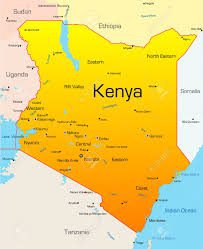Kenya requires $40 billion in private sector investment to achieve United Nations’ Sustainable Development Goal’s(SDG’s), a new report released on Wednesday by the Standard Chartered Bank has revealed.
According to the study, the opportunity for the private sector to improve the lives of Kenyans is substantial and identifies opportunities for the private sector to contribute to three infrastructure-focused goals between now and 2030.
Among the goals include, SDG 6: Clean Water and Sanitation, SDG 7: Affordable and Clean Energy and SDG 9: Industry, Innovation and Infrastructure across emerging markets.
“With one of the fastest-growing economies in Sub-Saharan Africa, Kenya is a promising country for investment,” said Kariuki Ngari, the CEO at Standard Chartered.
Currently, 56 per cent of Kenyans lack access to clean water and sanitation, while 36 per cent have no access to electricity, and the country’s digital access rate – a combination of mobile phone subscription rates and internet connectivity – stands at 34 per cent.
“The greatest opportunity in Kenya is found in achieving and maintaining universal access to electricity representing a USD15.6 billion private-sector opportunity. This takes into account the proportion of the Kenyan population currently without electricity access, projected population growth, and the growing demand for power as the economy develops,” notes the study.
For SDG 9, which encourages improvement in industry, innovation and infrastructure, Opportunity2030 highlights private-sector investment opportunities in transport and improving digital access. Securing full digital adoption in Kenya – measured by a combination of mobile phone subscription rates and internet connectivity levels – would require private-sector investment of around USD13 billion.
To significantly improve Kenya’s transport infrastructure by 2030 indicates a USD9.1 billion investment opportunity for the private sector, noted the study.
The study further points out that around 56 per cent of Kenya’s population still do not have access to clean water and sanitation facilities and closing this gap by 2030 will require significant investment, with an opportunity for the private sector to provide around USD2.3 billion of the funding.
JK/APA


